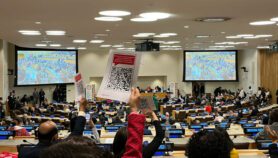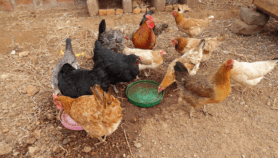Send to a friend
The details you provide on this page will not be used to send unsolicited email, and will not be sold to a 3rd party. See privacy policy.
The threat of AIDS in sub-Saharan Africa goes beyond the loss of human lives. Research funded by the Africa Biodiversity Collaborative Group shows that the pandemic is posing a serious threat to the environment and is complicating conservation and natural resource management efforts.
Timber and medicinal plants appear to be particularly at risk. Mourning rituals in much of rural Africa require that fires be kept burning for up to five days for both warmth and food. And the number of trees felled to make coffins has increased dramatically. In some areas, medicinal plants and wildlife — such as turtle eggs — are being over-harvested in the belief that they can cure AIDS. Traditional knowledge is also at risk, as people are dying before they pass it on to the next generation.
In this article, Emmanuel Koro describes Jane Dwasi’s research into the non-human casualties of the pandemic and points to a few institutions that have adapted their conservation efforts to cope with the new threats.













